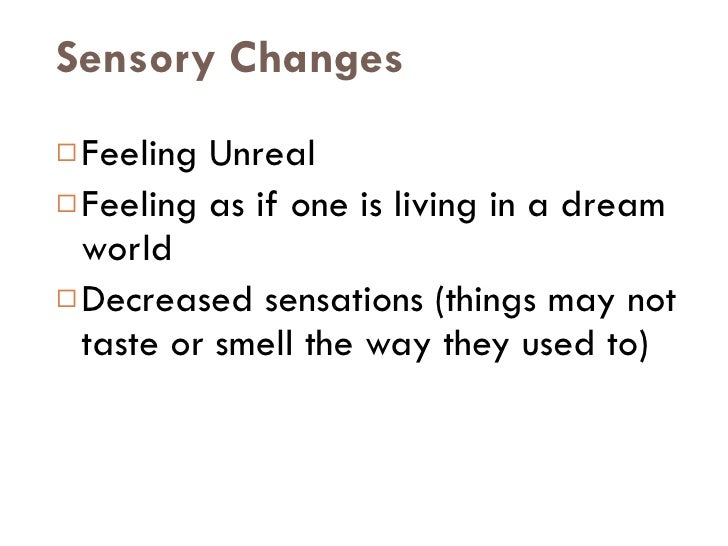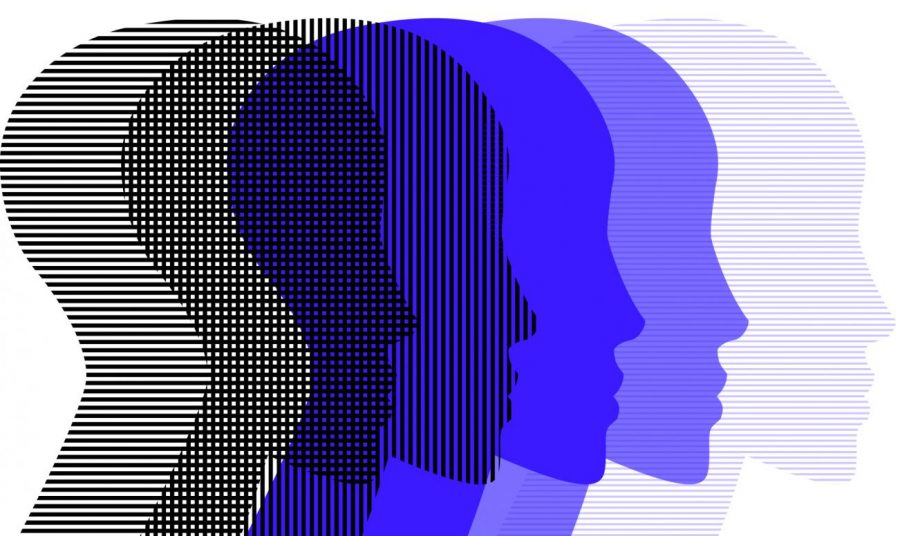

The psychological treatment of preference is cognitive-behavioral therapy as it addresses the negative attributions and appraisals contributing to the depersonalization/derealization symptoms (Medford, Sierra, Baker, & David, 2005). While there has been some evidence to suggest treatment with an SSRI is effective in improving mood, the evidence for a combined treatment method of psychopharmacological and psychological treatment is even more compelling (Medford, Sierra, Baker, & David, 2005). Because of this, there is some evidence to support that the diagnosis alone is effective in reducing symptom intensity, as it also relieves the individual’s anxiety surrounding the baffling nature of the symptoms (Medford, Sierra, Baker, & David, 2005).ĭue to the high comorbidity of depersonalization/derealization disorder and anxiety/depression, the goal of treatment is often alleviating these secondary mental health symptoms related to the depersonalization/derealization symptoms. The onset of the disorder is commonly triggered by severe stress, depression, anxiety, panic attacks, and drug use (particularly cannabis, hallucinogens, ketamine, ecstasy, and salvia).ĭepersonalization/derealization disorder symptoms generally occur for an extensive period of time before the individual seeks out treatment. Emotional abuse, emotional neglect, physical abuse, witnessing domestic violence, being raised by a parent who is seriously impaired and/or mentally ill, and experiencing the unexpected death or suicide of a family member or close friend are early-life stressors that have been identified to be associated with the disorder. There are clear associations between all of the dissociative disorders and childhood trauma and abuse but the association is slightly weaker for depersonalization/derealization disorder than it is for the other dissociative disorders (i.e., dissociative amnesia and dissociative identity disorder). However, as with other psychological disorders, it is suggested that the combination of genetic and environmental factors may play a larger role in the development of dissociative disorders than genetics alone (Pieper, Out, Bakermans-Kranenburg, Van Ijzendoorn, 2011). Very little is understood about the potential genetic underpinnings however, there is some suggestion that heritability rates for dissociative experiences range from 50-60% (Pieper, Out, Bakermans-Kranenburg, Van Ijzendoorn, 2011).

The causes of depersonalization/derealization disorder are largely unknown. As one can imagine, depersonalization/derealization disorder can cause significant emotional distress, as well as impairment in one’s daily functioning (APA, 2013). The onset is generally sudden, and similar to the other dissociative disorders, is often triggered by a intense stress or trauma. These episodes can last anywhere from a few hours to days, weeks, or even months (APA, 2013). Distortions of time, distance, and size/shape of objects may also occur. Sensory changes have also been reported such as feeling as though the environment is distorted, blurry, or even artificial. Feeling emotionally disconnected from close friends or family members whom they have strong feelings for is another common symptom experienced during derealization episodes. For example, people experiencing derealization may feel as though they are unfamiliar with their surroundings, even though they are in a place they have been to many times before.

Symptoms of derealization include feelings of unreality or detachment from the world-whether it be individuals, objects, or their surroundings. Individuals may also feel detached from their own feelings. Distortions of one’s physical body has also been reported, with various body parts appearing enlarged or shrunken. Furthermore, some people report feeling as though they lack speech or motor control, thus feeling at times like a robot. Individuals describe this feeling as an out-of- body experience where they are an outside observer of their thoughts, feelings, and physical being.

Depersonalization can be defined as a feeling of unreality or detachment from oneself. \): Clinical Descriptionĭepersonalization/Derealization disorder is categorized by recurrent episodes of depersonalization and/or derealization.


 0 kommentar(er)
0 kommentar(er)
